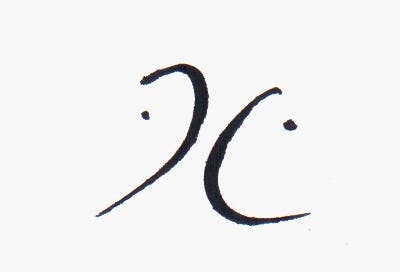Home1.
Young-Toby is writing his first novel during these unnoticed homely days. He wrote this on Christmas Eve just gone —
Started writing ‘The Notebook’. This is the working title of a novel, or a long short story. I have just written, but not finished, a short story called ‘Happiness’ on a similar theme, with a similarly autobiographical central character. I have decided to write simply, trying to take the American rather than the European models. No modernist tricks. Just starting at the Start. It is an Oxford novel. I might have to map-read it as Joyce did Dublin. However I know Oxford well enough in my mind. I’m not too good on street names. I’m convinced the way Joyce or Nabokov wrote — piecemeal — is very bad. I have ideas and hope to write them through. I don’t have great hopes for it as a work but with a prose work you can, at least, always do something. You are, during the time you are writing a novel, always writing. Poetry stops when the pen comes off the page. Have had the idea for at least a year.
(Note: I am still, occasionally, working on ‘Happiness’. I’ve never got it right.)
1990s-Toby is far better at writing than at storytelling. He thinks a version of what many first novelists think: that 70,000 words of consecutively narrated events will add up to a novel.
In fact, it’s probably necessary to have this delusion to begin a novel.
That Toby’s model is Samuel Beckett, who dealt with incessant narrative collapse, isn’t — for a while at least — going to help Toby to make anything ‘well made’.
He’s learning to play jazz by imitating Thelonious Monk rather than Oscar Peterson. He’s learning to paint by idolising Francis Bacon rather than Hans Holbein.
Overambitious is one word for this; open is another.




ROXIE, MY BLIND GRANDMOTHER
In a world veiled in darkness, my grandmother found her light in the tactile whispers of point print. At three months old, her eyes may have betrayed her, but her spirit was as sighted as ever. The Bible and books that filled her days were not defined by their heft or the thickness of their pages, but by the life they breathed into her through their raised dots-a language of touch, a precursor of Braille.
Her slate and stylus were her instruments of correspondence, a bridge between her world and that of her blind friends. With each letter she crafted, her thoughts were etched into existence, her words a tangible presence in a world she could only hear and feel.
Her books would rest on her lap, a foundation of knowledge and faith as solid as the earth itself. Her fingers, nimble and sure, would dance across the pages, a ballet of sensation and understanding. The dots beneath her touch would rise to meet her, eager to share their secrets and stories.
I remember the sound of her voice, rich and warm, as she read aloud. It was a melody that resonated with wisdom and resilience, a testimony to her ability to navigate a world that was not built for her. Her dexterity was a marvel, her fingers moving with a grace that belied their age.
Those books, the stylus, the slate-they were more than mere objects. They are the legacy of a woman who refused to be defined by her limitations, and who embraced the world with hands wide open. They are cherished not only for what they are but for what they represent: the indomitable will of my grandmother who saw more clearly with her heart than most do with their eyes.
Roxie, a name that echoed within the walls of our home, was a beacon of resilience and grace. Blindness never dimmed her spirit; it only sharpened her other senses, transforming other daily chores into a display of her remarkable capabilities. Roxie, her domain was the heart of our household kitchen- where she reigned with gentle authority and an unerring touch.
As our dishwasher, Roxie's fingers were like whispers over porcelain, detecting and erasing the slightest imperfection. Plates and utensils gleamed under her meticulous care; each one emerging from her hands as if they were new. It was a dance of fingertips and water, a silent symphony played out on ceramic and metal.
The snapping of green beans was a ritual she performed with a surgeon's precision. Each bean was a conversation between her fingers and the vegetable's hidden strings. She would hold the snapped pieces to her cheek, a gesture as tender as a mother's touch, ensuring not a single string remained to mar the perfection of her task.
Shelling peas was a task she cherished, a moment of peace in the rhythm of the day. The pea pods would yield to her deft fingers, splitting open to reveal their hidden treasures. The bowl would fill, each pea a testament to her skill, and the sound of the shells parting was a familiar refrain in the melody of our family life.
Grandma Roxie, as we fondly called her, was more than just a member of our family. She was a symbol of unwavering strength, a reminder that the human spirit can adapt and thrive. Her legacy is etched not only in the well-worn pages of her point print books but in the very essence of our home. She is unforgettable, a cherished memory that continues to inspire and guide us.
This is proudly my memories of a grand blind lady who greatly influenced my life and character.
Her grandson:
peppermiller3011@gmail.com